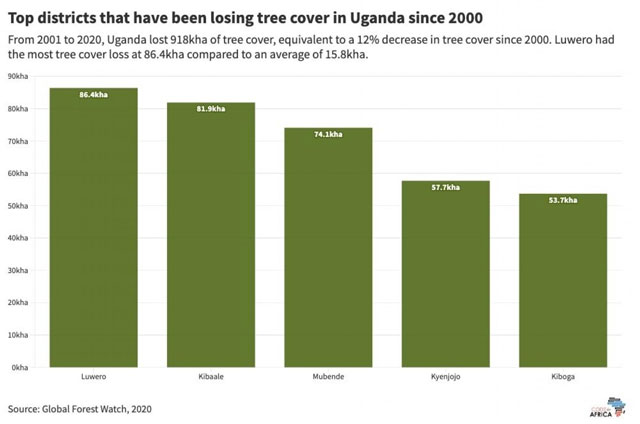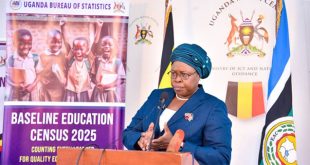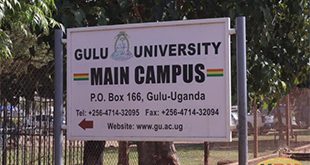
Kampala, Uganda | THE INDEPENDENT | Godfrey Karugaba roasts chicken on the roadside in Kalerwe, a Kampala slum. About three years in the business, Karugaba has tried a number of energy options including electric ovens for frying chips but has settled for a charcoal grilling stove for roasting chicken.
It’s the cheapest available option. “When I buy a sack of charcoal I can use it for two weeks depending on the demand,” Karugaba said in an interview. “Using an electric oven, every day I can spend like 10,000 Shillings (about US$2.7). When I use my charcoal grilling oven, I can spend 5000 (about US$1.4) to Shillings 6000 (about US$1.6) only on charcoal per day.”
A sack of charcoal currently costs between Shillings 100,000 (about US$27) and Shillings 120,000 (about US$33) in Kampala. That means Karugaba spends almost half of the money he would spend when using an electricity oven. For a person doing low cost business, this is the right math: low operation cost and perhaps high profit margin.
It’s the same reason Michael Isabirye who sells Rolex in Kampala and Mary Immaculate Alezuyo, a restaurant proprietor prefers to use charcoal. “Using charcoal at this moment is cheaper than any other alternatives,” Alezuyo says.
Demand drives supply, according to economics. Thus demand for charcoal is driving deforestation across the country. According to Global Forest Watch, an international organization that provides data and tools for monitoring forests, from 2002 to 2019, Uganda lost 64.3kha of humid (rain) forest, making up 7.9% of its total tree cover loss in the same time period. The total area of humid primary forest in Uganda decreased by 13% in this period.
And from 2001 to 2019, Uganda lost 844kha of tree cover, equivalent to an 11% decrease in tree cover since 2000. Districts that account for more than 55 percent of this loss include Kibaale, Luweero, Mubende, Kyenjojo, Kiboga, Mukono, Hoima, Mbarara, Mpigi and Gulu in descending order, according to Global Forest Watch.
As districts such as Mukono, Mbarara and Mpigi rapidly urbanize, trees and forests are cut down to set up houses. Urbanization is a key driver of permanent deforestation, Global Forest Watch data shows. For districts like Luwero, factors such as charcoal burning come into play.
A government national charcoal survey in 2016 found districts in the Central region as the leading producers of charcoal (40.9%) followed by northern regions (39.5%). It also revealed that central region districts were the main source of charcoal supplied to Kampala (63.4%). The leading supplier districts of charcoal in the central region to Kampala were Nakasongola, Nakaseke, Luwero and Kyakwanzi. Kampala is the leading charcoal market.
The survey also revealed that Charcoal is the most preferred fuel for heating and cooking in urban areas both by households and commercial enterprises. It said the annual consumption of charcoal was about 400,000 tonnes, 300,000 tonnes of this being consumed in Kampala.
The Food and Agriculture Organisation (FAO) estimates that 1.14 million tonnes of charcoal were produced in Uganda in 2019. Central regions districts are no longer the leading source of charcoal supplied in Kampala, half a dozen traders interviewed say. A substantial proportion of charcoal comes from northern Uganda particularly Gulu and Agago districts and mid-western Uganda districts of Kyenjojo and Kibaale.
The Environment Police Protection Unit, National Forestry Authority (NFA), and the Ministry of Water and Environment have in the past weeks been conducting operations to curb charcoal burning in northern Uganda. Commander of the Environment Police Protection Unit, Xavier Sekanabo says more than 100 charcoal dealers have been arrested during the operations.
He says the operation was triggered by rampant charcoal burning in northern Uganda. Whereas government forests are a bit well managed, Sekanabo says local forests, communal and private forest is where charcoal burning is going unbridled. The operations he says will cover the entire northern Uganda.
And local governments are to blame, Sekanabo says. “They are aiding massive cutting of forests. They aim at getting revenue but in the same case, they are depleting forests.” According to the law, he says if a district has no forestry management plan and a district harvest plan, it’s not supposed to authorize cutting of trees. He says it should be the same for individual forest owners. “Forest harvest is supposed to be sustainable. Without a plan, you cannot do it.”
It’s the same thought shared by Jimmy Ouma, the National Forestry Authority Range Manager for northern Uganda. Unless local leaders take up the initiative to curb charcoal burning in their areas, he says it will not end. He says they urged local leaders to make inventory of the forests under their districts before permitting charcoal burning. Local leaders, he says, were also giving movement permits without licenses meaning that they wouldn’t know where people burning charcoal were getting it.
Ouma also says there is a need for more operations to arrest charcoal dealers. Though the ongoing operation in northern Uganda will last one month, he says there are many districts which they may not reach because of limited time. //Cue in: “our operation will… Cue out:…not about money,”//
Market-driven business
As long as there is a market, suppliers interviewed say they won’t run away from the business, despite the many challenges they encounter. It’s an informal business; hence many dealers say they get arrested by police when driving charcoal from where it’s burnt to Kampala. They pay bribes to be released. Suppliers also say they have no licenses meaning they can be arrested for engaging in illegal activities when burning charcoal.
“Cutting trees for charcoal will not stop because many Ugandans need charcoal for cooking because there is no other option,” Joseph Senabulya, a charcoal supplier selling about 60 sacks a week says. “Charcoal is everything that any Ugandan would want to use for cooking. You cannot run out of the business when you have customers and get some profit,” says Bata Sserujjongi, a supplier who sells 100 sacks of charcoal every week in Kampala.
Energy experts think the government must promote some viable cheap energy alternatives to curb charcoal demand in urban areas. Dick Sserunkuma, an Agricultural Economist at Makerere University who has authored papers on charcoal burning says though the government appears to be trying to promote alternative energy sources to conserve the environment, “many people are priced out of these alternatives.” The government has been promoting rural electrification, but he argues, as long as electricity is still expensive, it will never be an alternative for rural Ugandans.
Harod Turinawe, an energy expert at Wild Wide Fund for Nature (WWF) Uganda says there is a need to focus on efficient use of biomass energy in urban areas. “Focusing on smokeless energy saving stoves that use firewood efficiently therefore relevant to the urban market that provides an alternative for charcoal,” he says. Turinawe also argues that alternatives such as Liquefied Petroleum Gas (LPG) is cheaper than charcoal at its current prices depending on where it’s to be used.
He says for the urban poor to start using gas, it has to be made a bit cheaper. For ordinary urbanites to embrace gas, Sserunkuma opined that there is the need for sustained sensitization of people to convince them that gas is indeed cheap and safe.
But usage of gas has not picked up in Uganda. The UN estimates that 5000 metric tonnes of gas were imported into the country in 2018, the last year for which data was recorded from 1000 metric tonnes imported in 1999 .
Certainly, many people think gas and electricity are not safer than charcoal. “People are still using charcoal because it is easy for everyone to use. It is very hard to tell a child to go and cook using electricity, but children can cook for parents using charcoal,” Erick Mubiru, a charcoal retailer argues.
This story was supported by Code for Africa, and funded by the Global Forest Watch (GFW) with support from the Norwegian Ministry of Climate and Environment (KLD). GFW supports data-driven journalism through its Small Grants Fund Initiative. The publisher maintains complete editorial independence over the stories reported using this data.
*******
URN
 The Independent Uganda: You get the Truth we Pay the Price
The Independent Uganda: You get the Truth we Pay the Price



